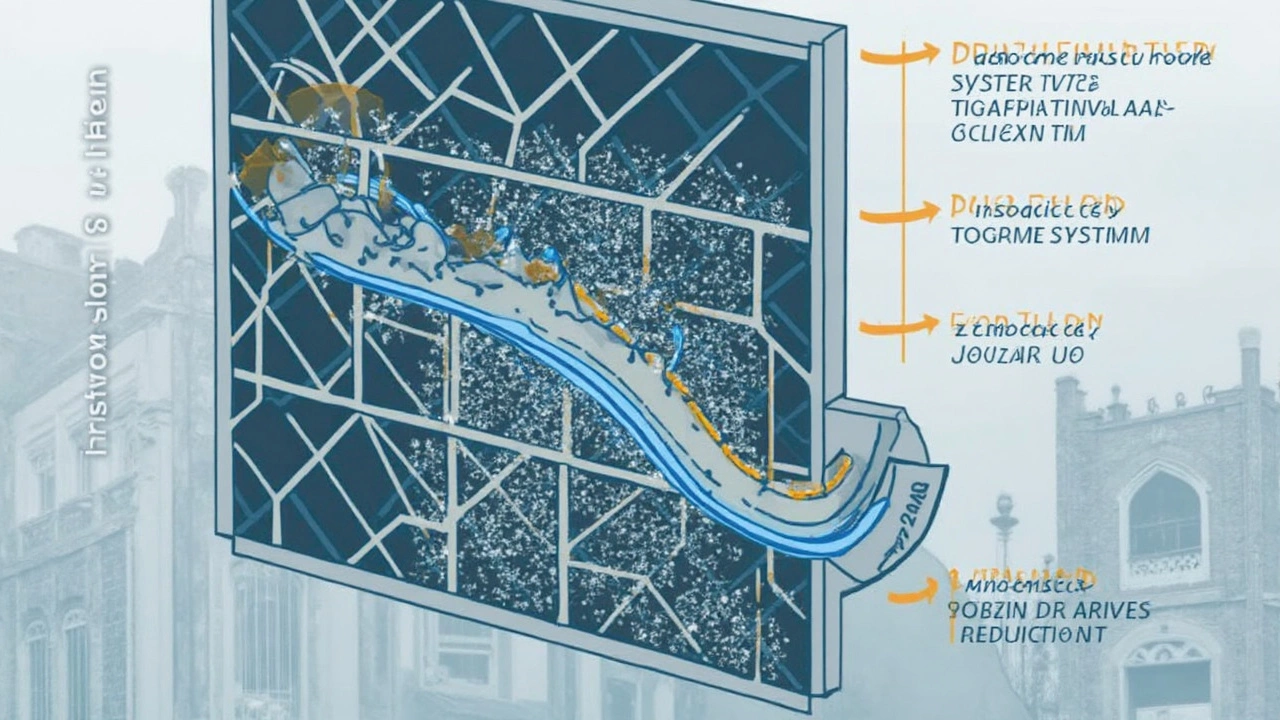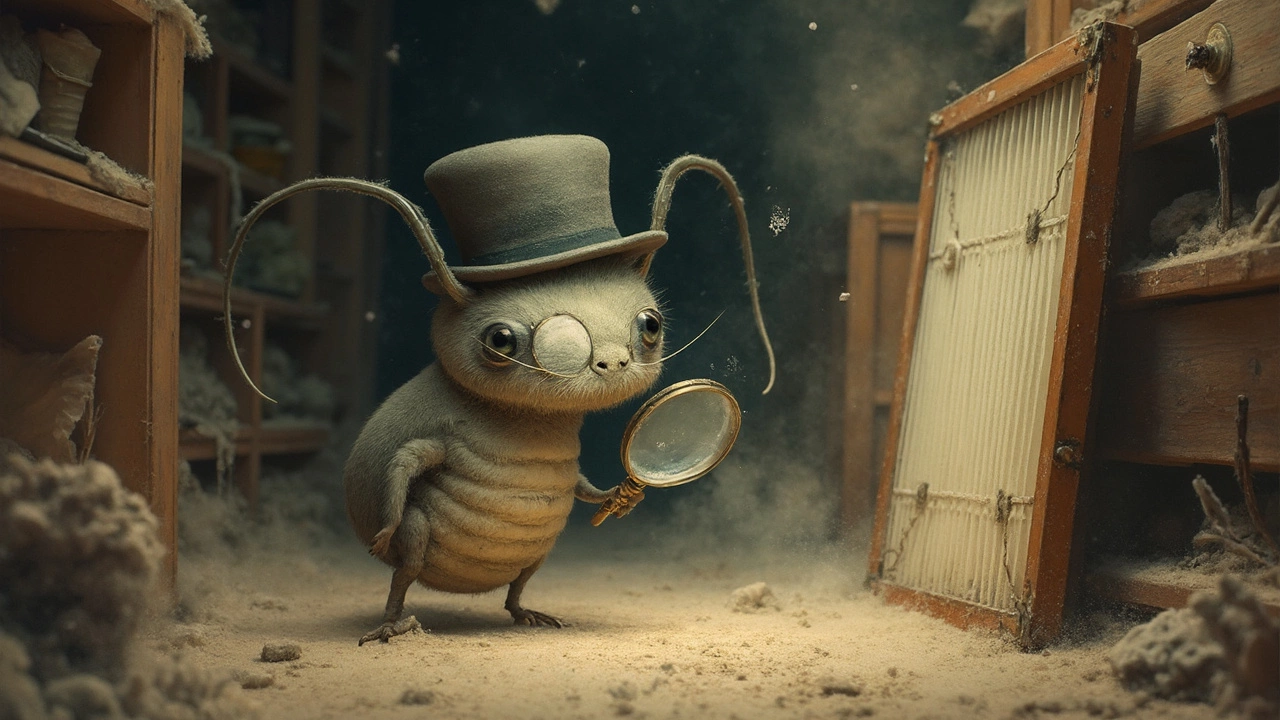Ever wondered why your indoor air feels a bit off lately? Well, your air filter might be the culprit. When these filters get clogged with dust and debris, they can't do their job properly. This not only messes with your home's air quality but also puts extra strain on your HVAC system.
So, how do you spot a dirty air filter? For starters, you might notice that your HVAC system is running longer than usual. It struggles because it's trying to push air through all that gunk. Plus, you might catch a whiff of musty odors, or even find yourself reaching for allergy meds more often.
- Impact on Air Quality
- Changes in HVAC Performance
- Unusual Odors and Allergies
- Increased Energy Bills
- Maintenance Tips and Tricks
Impact on Air Quality
One of the biggest signs of a dirty air filter is a noticeable dip in the quality of the air in your home. When these filters are clogged with dust, pollen, and other particles, they can no longer trap these pollutants effectively. This means more of these particles float around your living space, which isn't great for anyone's health.
Jill Smith, an indoor air quality expert at the Environmental Health Institute, once said,
'The air filter in your HVAC system is like a protective barrier. When it's compromised, everything from the smallest dust mite to larger allergens like pet dander gets recirculated through your home.'Kids, elderly folks, and those with asthma or allergies are particularly susceptible to these changes.
Signs to Watch For
Here are some clear indicators that a dirty air filter might be affecting your air quality:
- More dust settling on your furniture than usual.
- Allergy symptoms like sneezing or coughing flaring up more often.
- Musty or stale odors hanging in the air.
Why It Matters
Aside from being uncomfortable, poor air quality can have more serious health implications over time. A famous study conducted by the Asthma and Allergy Foundation of America highlighted that improper ventilation and filtration significantly contribute to indoor air pollution levels that are often two to five times higher than outdoor levels. Keeping your HVAC system in tip-top shape is crucial not just for comfort, but also for your health.
If you're seeing these signs, it's time to take action. Regularly checking and replacing your air filter can make a world of difference in ensuring safe, clean air indoors.
Changes in HVAC Performance
Your HVAC system is like a well-oiled machine that keeps your home cozy and fresh. But when you have a dirty air filter, things can go south pretty quickly. One of the tell-tale signs is a noticeable decrease in performance. Your system might work overtime, causing it to cycle on and off more frequently. It’s like the poor thing is gasping for air through a blocked straw.
Air filter symptoms can manifest in various ways, directly impacting how your HVAC operates. You may notice rooms not reaching your desired temperature as quickly or evenly. Even with the thermostat set to your favorite settings, you might still feel a bit chilly.
Warning Signs to Watch For
- Inconsistent Temperatures: Some rooms feel just right while others are cold or hot.
- Longer Run Times: Your system seems to run forever and never quite feels like it shuts off.
- Poor Airflow: You barely feel air coming from the vents even when the system is running full blast.
If any of this sounds familiar, it's time to take a peek at your air filter. A simple check and replacement could save your system from unnecessary wear and tear.
Energy Efficiency Hits
Here’s the kicker: clogged filters also mean your system uses more energy. The dust and particles cause your HVAC to work harder, using extra energy just to keep up. This can be a real hit to your wallet, and with energy prices on the rise, that's the last thing anyone wants.
By maintaining a clean air filter, you’re not only boosting your HVAC’s efficiency but also keeping those energy bills in check. So, next time you're doing a bit of home maintenance, take a moment to inspect that filter. It’s a small step that can make a huge difference in your home's comfort and your bank account.
| HVAC Component | Potential Issue |
|---|---|
| Blower Motor | Increased strain, reduced lifespan |
| Heat Exchanger | Overheating, potential failure |
| Evaporator Coil | Ice buildup, reduced cooling efficiency |

Unusual Odors and Allergies
Notice a funky smell wafting through your home? This might be your trusty air filter sending out an SOS. When it's clogged up, it's also home to mold and bacteria, which can cause some unpleasant odors. These smells usually circulate when your HVAC kicks in, and instead of feeling refreshed, your air smells stale.
If you're experiencing the sniffles indoors or if your allergies are suddenly acting up, consider checking the filter. Dirty air filters can exacerbate allergies by recirculating dust, pollen, and other allergens rather than trapping them where they belong. Breathing this in isn't just annoying; it can be harmful, especially for folks with asthma or other respiratory issues.
Spotting the Symptoms
Here are some signs your air filter might be the troublemaker:
- Sudden or persistent musty odors inside your home
- Increased allergy symptoms like sneezing, runny nose, or itchy eyes
- Dust buildup on surfaces shortly after cleaning
The good news is, swapping out your filter is a simple fix. Regularly changing your air filter can help maintain a fresh-smelling home and better air quality. For most homes, this means checking monthly and replacing when it looks dirty. Set a phone reminder if you have to; it's worth it.
Benefits of Changing Filters
A little attention goes a long way. Regular maintenance can improve your home's air quality, reduce asthma attacks, and prevent long-term damage. Plus, it helps your HVAC run efficiently, which might save you a few quid on energy bills!
Increased Energy Bills
Have you noticed your electricity bill creeping up? A dirty air filter could be a sneaky reason behind it. When the filter is clogged, your HVAC system must work overtime. It's like blowing through a straw that's nearly blocked — exhausting, right? This extra effort means more energy consumption, which translates to higher bills.
According to energy experts, a clogged filter can cause your system to use 15% more energy than usual. That's a significant jump that doesn't just hurt your wallet but also affects the environment. By changing your air filter regularly, you can avoid this unnecessary expense.
Spotting the Warning Signs
If you start seeing these higher bills, it's time to consider if your air filter is due for a change. Look for other signs, like your HVAC system being noisy or taking ages to heat or cool your home. These are red flags indicating that something is off.
Quick Tips to Keep Costs Down
- Check filters monthly: Make it a habit to check your filters at least once a month. It’s a quick task that could save you a chunk of change.
- Use high-quality filters: Investing in a good-quality filter can make a big difference. They last longer and often do a better job.
- Schedule regular maintenance: Having a professional service your HVAC system annually helps keep things running smoothly.
Sometimes the simplest fixes are the most effective. Keeping your air filter clean doesn't just mean better air quality; it keeps your energy bills from ballooning too.

Maintenance Tips and Tricks
Staying on top of your dirty air filter situation isn’t as challenging as it might seem. With just a little bit of effort, you can ensure your home stays clean and your HVAC system runs smoothly.
Check Your Filter Regularly
One of the simplest ways to avoid issues is to check your air filter every month. A quick look can save you loads of hassle. Set a reminder on your phone, and make it a part of your routine.
Know When to Change
Generally, changing your air filter every 90 days works for most homes. However, if you have pets or allergies, consider swapping it out every 60 days instead.
Choose the Right Filter
Not all filters are created equal. Make sure you're using the right filter for your system. Check your HVAC manual or consult a professional if you're uncertain.
Keep the Area Around the Filter Clean
Dust and debris can accumulate around the filter and sneak into your system. Regularly vacuum the area to keep it as clean as possible.
Consider Upgrading to a Higher MERV Rating
If your home suffers from chronic air quality issues, upgrading to a filter with a higher MERV rating might be a good solution. Higher MERV ratings mean better filtration.
| Filter Type | MERV Rating | Use Case |
|---|---|---|
| Fiberglass | 1-4 | Basic filtration and low resistance |
| Pleated | 5-13 | Improved filtration for allergy households |
| HEPA | 14-17 | High-efficiency for sensitive environments |
These simple steps will help you maintain a cleaner air flow and keep your energy bills down. An efficiently running system is not only cost-effective but also keeps your air much fresher.

